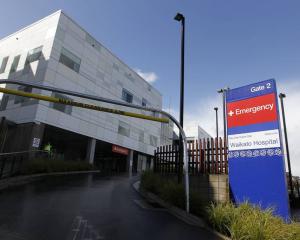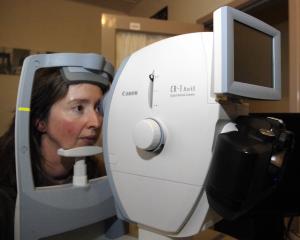
At the end of September, three months into the new financial year, the board had spent $700,000 more than planned on drugs.
Regional chief financial officer Robert Mackway-Jones told the board last week that average monthly expenditure for cancer drugs was $208,000, which represented an almost 30% increase from the previous 10 months' average expenditure.
While there would be some decrease in pharmaceutical spending generally later in the year, when some drugs came out of patent, allowing for cheaper substitutes, this was not expected to be the case with cancer drugs.
Chief executive Brian Rousseau said this appeared to be the trend nationally.
Board chairman Richard Thomson said he would like more details on the issue to know whether it was cost growth or volume growth which was causing the deficit.
Board member Susan Johnstone asked if, since it was a national problem, there would be extra funding available.
Mr Rousseau said he could not see that, since boards had already received some additional funding.
Funding issues continue to dog the board, which has still not had its district annual plan for this year approved by the Ministry of Health.
It expects to have a $9.3 million deficit for the year, but by the end of the first quarter in September its actual deficit was already $2 million over budget.
As well as pharmaceutical overspending, some of which will be recouped, personnel costs are showing up almost $1 million over budget, but a large part of this is due to the way annual leave is shown in the budget and is expected to correct itself.
Mr Rousseau told the board he would like the ministry to consider the possibility of getting this year's plan signed off, then working on a three-year plan which would aim to break even.
The board's difficulty is that it needs cash to fund its operating deficit, but it also requires major capital expenditure because some of its facilities no longer reach national standards.
The ministry's view appears to be that if the board chooses to have high capital expenditure it then cannot receive deficit support.
The board argues that it has no choice about its spending on substandard buildings.
The first stage of its master-site planning project, which will upgrade some substandard facilities at Dunedin Hospital and transfer some services and staff to Wakari Hospital, will cost $38.5 million.
Budgeted capital expenditure for this financial year, most of it outside the master-site plan, totals $24.2 million, including some items carried over from last year.
It also includes the $2.4 million relocation of Public Health staff to Wakari Hospital, which has already started.
Mr Mackway-Jones said reinvestment in capital works would usually be in line with depreciation, but the board needed to spend far more than that because so much of its equipment was nearly obsolete.
The board was still considered over-funded according to the population-based funding formula, and Mr Mackway-Jones said even if the current national review of this funding was to provide some benefit to the board, he did not expect it would be anywhere near what it required to break even.
He did not expect a decision on the annual plan before Christmas.











